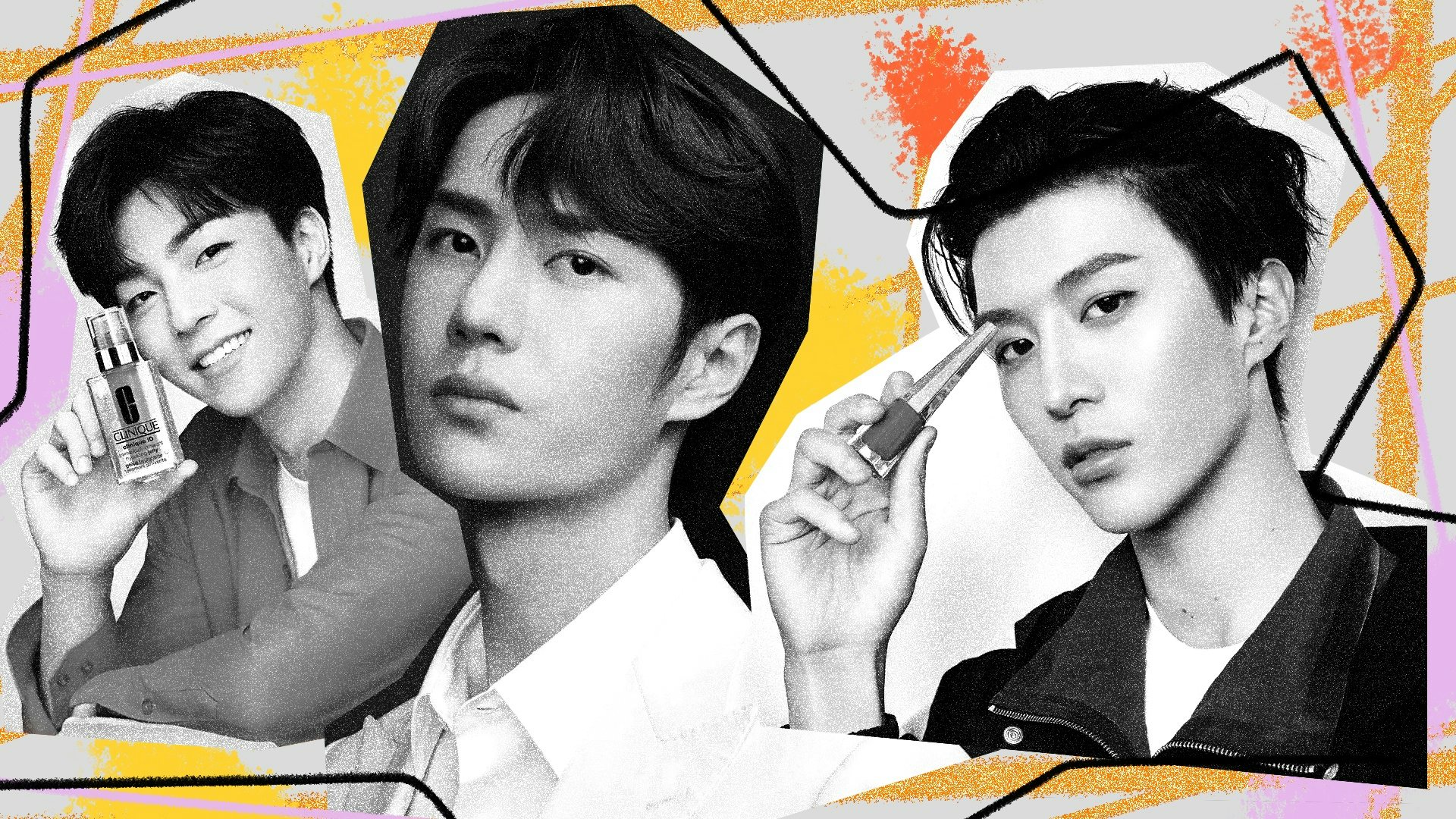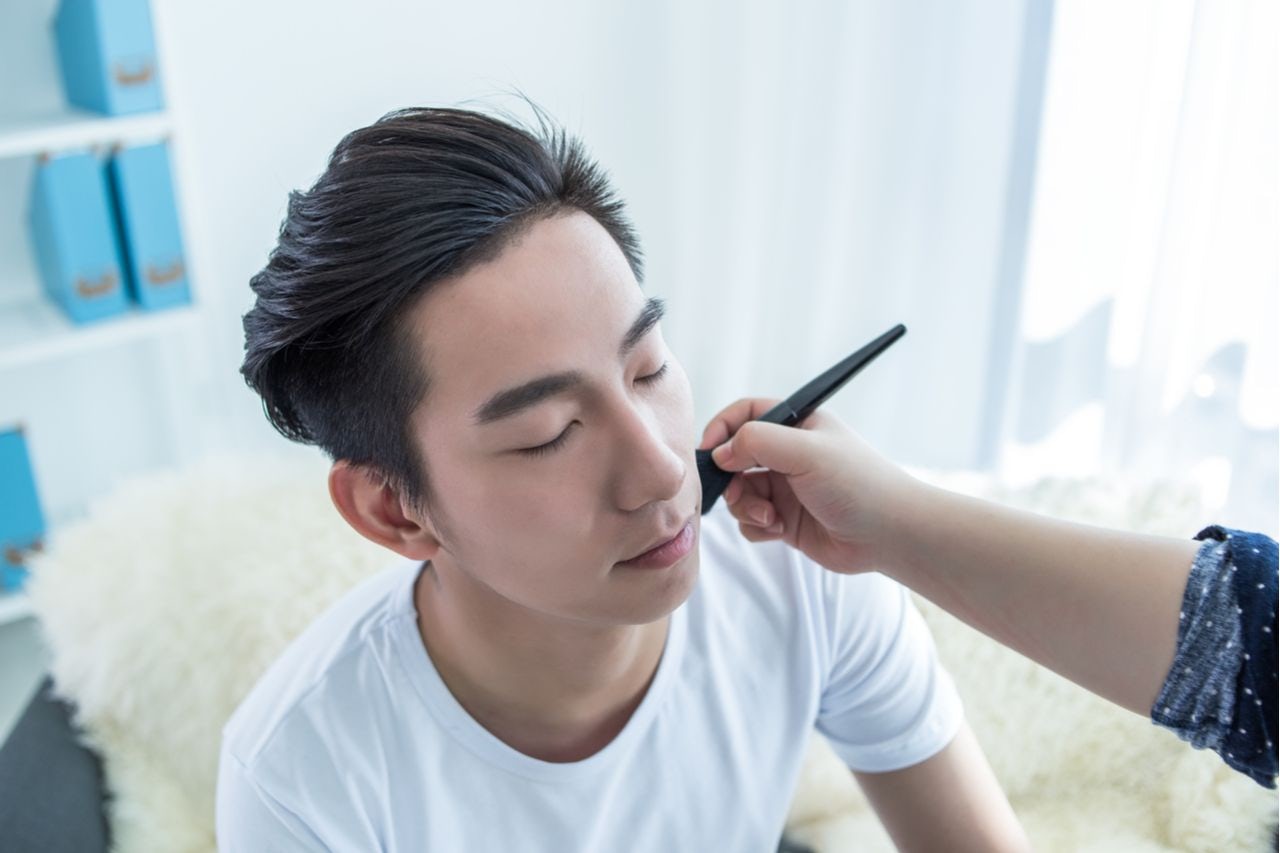CNBC had already highlighted how the male beauty segment was becoming an “emerging disruptor” in the cosmetics industry back in 2019. The men’s personal care market was predicted to hit 166 billion by 2022, according to Allied Market Research, while Marketing to China emphasized that male beauty and skincare was one of China’s fastest-growing consumer product segments in 2019. Chinese men also ranked first globally during 2019 for facial moisturizer use, with 65 percent of the country’s consumers using the product regularly, according to Daxue Consulting.
A report collaboratively released in June 2018 by Vipshop.com and JD.com showed that the Chinese skincare market had reached the ten-billion-RMB mark. The report also stated that 96 percent of Chinese men purchased cosmetics over the previous year, and the sales volume of skincare products purchased by men nearly doubled during that year. Facial masks ranked first but were closely followed by BB creams and eyebrow pencils.
This upward trend shows that there have been changes to the concept of masculinity in China. Younger Chinese men are more open to experimentation, and they are confident enough to try these new products and cosmetics. Not by chance, China’s best-selling lipstick salesperson is a man: Li Jiaqi, who is also known as the “Lipstick Brother.”
But despite changes in consumer behavior and the growing demand for male beauty products, not all brands have met customer expectations. That is especially true for brands that depict stereotypical gender roles or promote images of traditional masculinity. Through the proliferation of harmful ideologies, they teach youngsters that makeup and skin-enhancing treatments come with a built-in “feminine” tag. So instead of addressing the stigma against male skin treatments and breaking cultural taboos, these brands are complicit.
But those brands’ hesitation could present an opportunity to niche brands and C-beauty players that respond faster and more effectively to consumer demands. For example, Foreo has become the most popular beauty device in China, accounting for roughly 7 percent of the country’s beauty device market. The “Foreo Luna Men” beard cleaning tool has strengthened the Swedish brand’s perceived value in China, showing that the company has the same zeal and innovation for designing male beauty devices as it does for female beauty products.
Meanwhile, the skincare brand Pechoin has seen a re-birth, becoming the indisputable market leader in China partially because of its men's line. The C-beauty company has found substantial success with products exclusively for its male consumers, such as its beauty masks called "little moments of joy" (小 确 幸).
What drives male cosmetics sales in China?#
On Weibo, Bilibili, WeChat, TikTok, and Xiaohongshu, a new generation of attractive, boyish men is gaining social-media traction with their beauty tutorials and skincare routines. This generation of boys, known as “little fresh meat” 小鲜肉, is commanding high engagement and pushing male beauty trends forward.
They are also partially responsible for shifting perceptions and exposing men to a new and more diverse vision of masculinity. Thanks to these influencers and KOLs, “woke” or progressive traits have replaced the characteristics of a conventional “macho” personality. For example, beauty vlogger Dong Zichu (aka “Benny Bitch”) has an androgynous look that appeals to both male and female followers. He’s as known for his feminine” look as he is for his makeup tutorials and beauty tips.
Wang Yuepeng is a professional makeup artist and another famous male makeup vloggers in China, according to Sixth Tone. He’s also a firm believer in the concept that “one day, wearing makeup will be as common among men in China as it is in South Korea and Japan.” Meanwhile, Song Geng, a University of Hong Kong professor whose research focuses on Chinese masculinity, told Sixth Tone the “little fresh meat” 小鲜肉 generation of influencers, “with their flawless skin and boyish mannerisms,” is changing “what constitutes a desirable man.”
K-pop and pop-culture influence#
It’s worth noting that the “little fresh meat” internet generation didn’t invent the androgynous look — it was South Korea’s K-Pop scene that pushed beauty boundaries and redefined the concept of masculinity in this region.
With their delicate features and love of makeup, nail polish, and female fashions, Korean boy bands were crucial in reinventing the beauty industry. Who in the region could forget the early years when Ren (a member of the boy band NU’EST) performed with beautiful, long locks?
Gen-Z and millennial men are passionate about grooming#
In 2018, L'Oréal and Tmall jointly released a report that focuses on male consumption and behavior, according to China Daily. According to the report, the number of male consumers who bought personal care products on Tmall has grown by 47 percent since 2017, while that number for female customers has only increased by 31 percent.
Furthermore, the report shows that China was entering a segmentation stage with different consumer brackets that have distinct interests, including professional personal care products and cosmetics (18 percent), perfume (10 percent), and hair care products (6 percent). Sofya Bakhta, the marketing strategy analyst for Daxue Consulting, told Cosmetics Business that “young people continue to be a predominant customer segment, while skincare products for acne-prone skin rank among the most-searched-for products.”
In other words, brands have an opportunity to win the allegiance of this digital-first consumer base, while they also educate them on the benefits of certain products. This approach builds brand loyalty and creates brand ambassadors out of customers.
Career pressure#
Looking good is a pathway to affluence and professional success in China, so a polished look is a necessity for most professional men who want a high-paying position. In fact, many job ads demand that an applicant send his picture along with an application. Such practices encourage discriminatory hiring, but they also promote the idea that the Chinese professional world rewards “attractive” people with high-ranking, high-paying positions. Therefore, it’s not surprising that applicants are feeling increased pressure to look well-groomed all the time.
In past years, China’s male beauty segment expanded significantly, and both smart global cosmetics brands and C-beauty niche players learned how to take advantage of this opportunity by moving away from traditional gender roles and being more inclusive. With proper marketing, many brands have learned to deliver the value that their consumers were demanding.
But in the long run, the need to continually change will be too challenging and expensive for some brands, especially smaller niche players, and they will start losing market share to their competitors. Many beauty players will find it increasingly difficult to keep up with marketing, legal, and operational costs, so to keep costs down, they would be wise to only focus on one product category.

